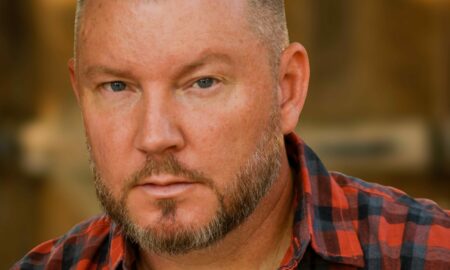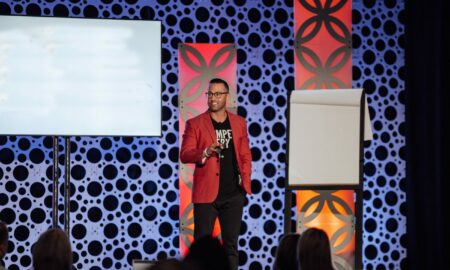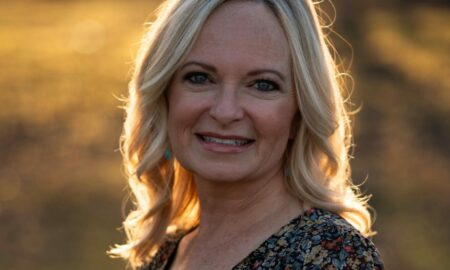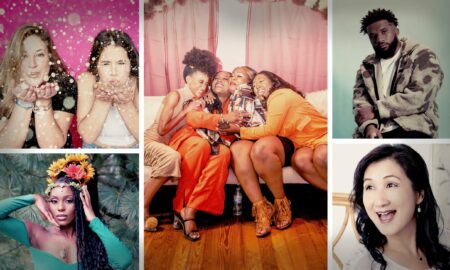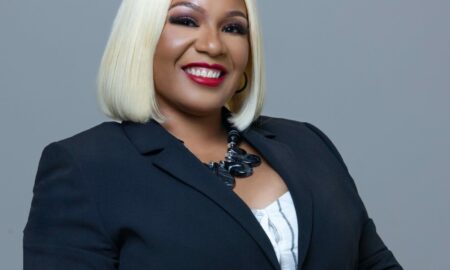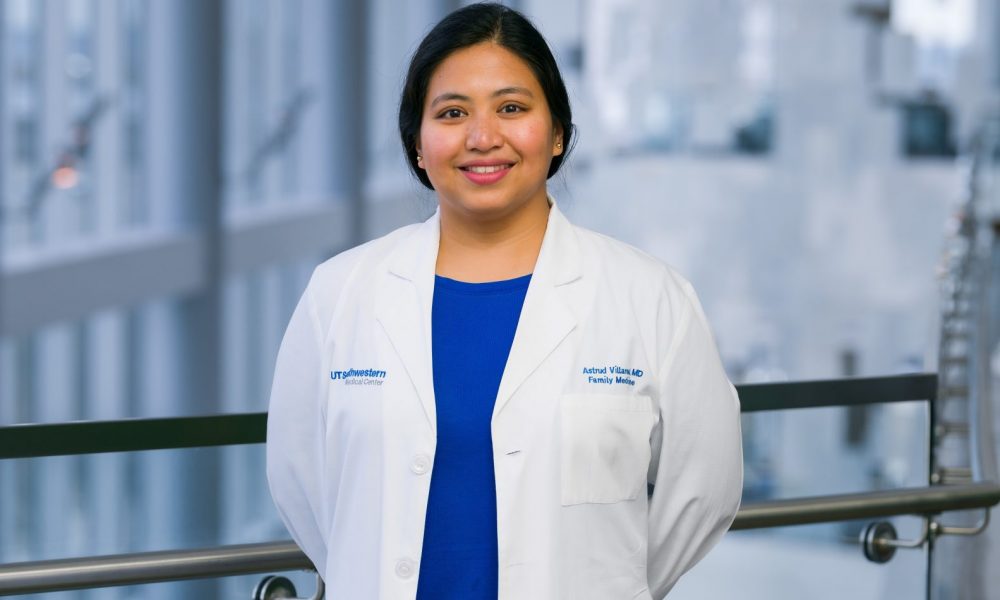

Today we’d like to introduce you to Astrud Villareal.
Hi Astrud, so excited to have you on the platform. So before we get into questions about your work-life, maybe you can bring our readers up to speed on your story and how you got to where you are today?
I was born and raised in the Philippines until I moved to Dallas, TX to start high school at Woodrow Wilson High School in east Dallas. Looking back and thinking about it, there was a lot of adjustment that happened – new culture, new school system, new friends, almost new everything! I balanced academics with basketball and participation in our arts program (show choir and theater). I consider myself lucky with having a supportive mother who attended numerous games, plays and competitions. One of the summer programs that I attended at UCLA, the National Youth Leadership Forum in Medicine, sparked my interest. I would also find my first mentor here at Woodrow Wilson High School, my basketball coach, Coach Tony Bustos. I chose to attend Southern Methodist University (SMU), as a Hunt Leadership Scholar.
Through this prestigious program, I spent a semester abroad in Copenhagen, Denmark, learning about the European health care system, European government structure as well as marine mammals. I graduated cum laude from SMU with a bachelor’s degree in Biological Sciences and minors in Chemistry, International Studies and Human Rights. Additionally, I participated in the University’s Honors Program in the Liberal Arts during my four years there. In my free time, I participated in several volunteer organizations, cheered for the Mustangs in sports activities and continued to seek guidance from mentors as I actively worked on my application for medical school. Fueled by my experiences in high school and college, desire to help people, and love for science and humanities, I completed my medical school at University of Texas Southwestern Medical Center (UTSW), where I participated in student-run free clinic and the annual health fair, United to Serve.
I then spent the next three years in my residency training at UTSW Family and Community Medicine, serving as Chief Resident during my third year and graduating with Departmental Distinctions in Community Medicine and Global Health upon graduation. My passion for teaching, community health, and mentorship led me to my current positions – Assistant Professor and Associate Program Director – at UTSW Family and Community Medicine. Part of my job currently involves ensuring that our residents receive well-rounded training in family medicine in a supportive environment. Through all my years spent in classes, hospital or clinic, my mother continues to be my number one supporter and I truly am thankful. In my spare time, I enjoy traveling (especially making itineraries) as well as trying out new cuisine with family and friends.. I look forward to a time where I can attend concerts in person again and spontaneously gather with family and friends.
I’m sure you wouldn’t say it’s been obstacle free, but so far would you say the journey have been a fairly smooth road?
Much like every journey, mine has certainly not been perfect. I think the first struggles would be that of an immigrant and the adjustment that goes with this. I needed to learn so much during my first years here in the United States. I needed to learn more about the education system in preparation for college, about the healthcare system to ensure the wellbeing of our family, about the political system in order to be active participants in our country’s government, etc. There were multiple levels of learning happening while I tried to balance academics and extracurricular activities. There are also financial struggles that are part of my story. My mother made a lot of sacrifices for both of us – working multiple jobs – not really taking any breaks so that I can focus on school and not have to work myself.
She wanted me to continue pursuing activities like basketball, choir and theater. Because of her sacrifices, I was able to devote time and energy to activities that led me to my current position and I am forever grateful. In college and medical school, I would say one of my personal struggles would be my love for so many things and difficulty in saying no – whether that’s a new club, leadership position or volunteer opportunity. That meant that while I surrounded myself with things I enjoyed, it also limited the amount of time that I can rest and reflect on things. Certain friendships and relationships were put on the back burner in order to continue to have time for all of my commitments. As one can imagine, this really is not a sustainable way to live. It was exhausting. Meanwhile, opportunities continued to present themselves. Through supportive mentors and family, honest self-reflection, and a lot of work (which continues on), I can say that I see the value in setting these boundaries and feel comfortable following through.
Appreciate you sharing that. What else should we know about what you do?
I am a Board-Certified Family Medicine Physician so in terms of academics, that’s my actual specialty. A lot of people actually ask me what exactly family medicine is. As physicians, we are trained to take care of children, adults and women of childbearing age. Some people use the adage from the womb to the tomb in order to describe the patient population that we take care of. We are also privileged to get to know our patients in a way that other physicians may not get a chance to, developing relationships with them throughout the years and at times, even their family members. One of the things that I feel the proudest of is seeing residents that I have taught or mentored flourish as the year’s pass. As recent medical school graduates, they start out nervous, often questioning whether they are “good enough” for this specialty. (To be honest, this is something that does not fully go away though it really can and does improve!).
It is so rewarding to hear them discuss patient assessments and plans with competence and to see them talk to patients with confidence. Don’t get me wrong, these residents work hard to get to this place, making numerous sacrifices along the way so I am not taking credit for what they do. I do take pride in knowing that hopefully, something I taught them or demonstrated to them helped them get to this point. It’s the teacher’s dream to watch his or her students excel, isn’t it? What sets me apart from others, I think, is my approach to work. In all the leadership positions that I have held, including my current ones, I think about people’s individual strengths but also focus on a collaborative effort. Whether I am assigning roles or giving feedback, I first focus on strengths. What is this person doing well? What are they good at? What do they like to do? If given the opportunity, I will position people in a place where these strengths are at the forefront and then compliment them on their efforts. While I see the value in working on our weaknesses, I think at times, we focus too little on our strengths and do not take advantage of this. There is a reason people naturally advise others to pursue something they like for a career. I find that instances where I’ve capitalized on people’s innate talents and likes, they have not only succeeded but really left that task, job or position better than when they started. All of this could still live in a framework of collaboration but this time, the different parts of the whole are focused on tasks that they are good at and enjoy.
Before we let you go, we’ve got to ask if you have any advice for those who are just starting out?
I have been the beneficiary of important and life-changing advice from others. It’s really neat to be able to give some out now! A lot of the advice below pertains to a career in medicine, but I do think a lot of them can also help with other areas of life. Figure out your own why. Our reason for pursuing careers or changing jobs for that matter, are all driven by motivations – our whys. When opportunities present themselves or when we are uncertain about a choice or when we are exhausted, it is the whys that guide us and keep us going. Think of your why as your true North star. It may not show you the steps but it will guide you to what matters to you. Define what you consider to be a success. There will be many metrics and measurements of what a successful year in training or clinic week is. In a world where you are constantly being assessed by patients and peers, there may be days where you feel like an imposter – someone that clearly does not belong there – or worse, a failure.
The truth is that you are not. We are all human so we will make mistakes. We actively try not to, and we put systems in place so that hopefully, mistakes are caught early. But truth be told, you will make them. This is why it is important to figure out what you consider to be a success at the end of the day. This is likely a more realistic measure of your performance, and best of all, it can help protect you from the feelings of being an impostor or a failure. Find a team of honest mentors. I am grateful for all of my mentors who have given their time, wisdom and selves to guide me. Some of these people have been assigned to me and others I have sought out. Regardless of how our paths met, they have always inspired and given me practical advice about decisions and choices. At times, what they had to say were not particularly things that I wanted to hear but I knew that their role as my mentor was not always to make me happy but to look out for me and my best interests.
When you find these people, hold onto those relationships. Set your boundaries early and stick with it. Medicine will always keep asking of anyone in it. There is always one additional paper to read, topic to review, or email to read. This is the nature of medicine but as people in this field, we cannot function well in these circumstances. Maybe for a short time we can manage but this is not sustainable. Setting boundaries allows us to live balanced lives because we prioritize time outside of work. It provides us with time to rest and reflect so that we can give 110% again the next workday. Boundaries are an important tool that can help protect us from burnout and moral injury. Be grateful and make sure people know it. So many people have helped you along the way. I hope you take time to reflect on those people and actually tell them! As I have already mentioned before, I am here with the help of numerous mentors, with my mom being in the forefront. So mom, if you are reading this, which I know you are, I am forever grateful to you and all of your sacrifices.
Contact Info:
- Email: astrud.villareal@utsouthwestern.edu
- Website: https://utswmed.org/doctors/astrud-villareal/
- Instagram: rechargeability
- Twitter: rechargeability


















